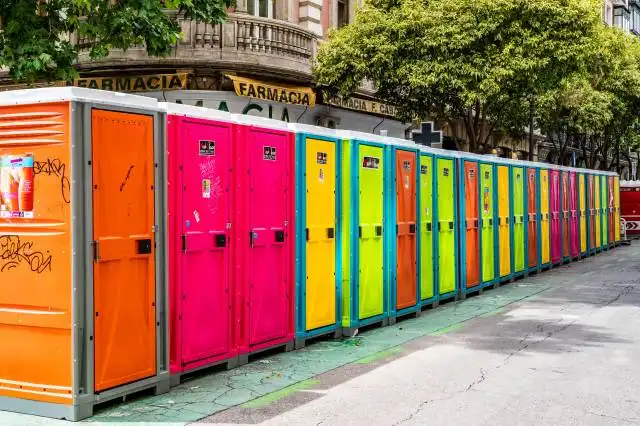Start a Motel Business
Creating Your Own Hospitality Haven: Step into the Motel Business
| Updated


MOTEL BUSINESS
Jump into the hospitality world with your very own motel business! This adventure not only brings the satisfaction of providing a home-away-from-home, but also the thrill of meeting diverse people, each having different tales to share. In essence, a motel business caters to travelers seeking affordable lodging and rest, making it a hotspot for road trippers, wanderlust souls, and budget-bound tourists. With spirited service and a touch of personal charm, your motel could be the next sunny haven on the highway!
Jump to Business Plan
RELATED BUSINESS IDEAS
Browse ALL Hospitality & Leisure Ventures Business Ideas
Discover Your Perfect Domain
Unlock the door to your online success with our hand-picked selection of premium domain names. Whether you're starting a new venture or rebranding an existing one, the right domain can set the tone for your digital presence. Browse through our curated list, each with its unique potential to enhance your brand's visibility and credibility.
MOTEL MINI BUSINESS PLAN
This a quick reality check to help you identify the strengths and weaknesses of your business concept before you dive in.
Expected Percent Margin:
- Gross Margin: 50-75%
- Net Profit Margin: 10-20%
Earnings Expectations:
- Daily Earnings: $400 - $1600
- Weekly Earnings: $2,800 - $11,200
- Monthly Earnings: $12,000 - $48,000
- Annual Earnings: $144,000 - $576,000
Actions to Hit Those Numbers:
Property Management:
- Initial Investment: Starting a motel from scratch will require a substantial initial investment, possibly running into millions of dollars depending on the location, land costs, and the scale of the motel.
- Room Rates: Pricing is key in earning revenue. Monitor competition and consider local demand when setting room rates.
Marketing and Customer Acquisition:
- Online Presence: Ensure online presence through hotel booking sites and maintain an up-to-date motel website to attract digital bookings.
- Promotions & Discounts: Run promotions during off-peak periods to attract guests.
Operations and Customer Experience:
- Staffing: Hire competent and service-oriented staff to provide high-quality service to guests.
- Maintenance: Regular upkeep and maintenance of the property is essential for guest satisfaction and retention.
Cost Control:
- Lease or Purchase: Consider leasing the property if buying is not a cost-effective solution.
- Utilities and Maintenance: Allocate a portion of your budget for utility bills and maintenance costs.
Business Operations:
- Occupancy Rate: Aim for an occupancy rate of 60-75% as a realistic initial goal for run-of-the-mill motels.
- Peak and Off-Peak: Seasonal demand for rooms may differ greatly. Make necessary arrangements to face both peak and off-peak periods.
These are generalized numbers and actions and may vary depending upon several factors like location, competition, and specific operational costs. Always consult with a professional for personalized financial advice.
NOT WHAT YOU HAD IN MIND? Here are more ideas



Browse ALL Hospitality & Leisure Ventures Business Ideas
Grab Your Business Website Name
Before you get caught up in the whirlwind of setting up your business, invest in a domain name. It's a small but significant step that lays the foundation for your brand and makes it easier for customers to find and trust you. Just like you wouldn't build a house without securing the land first, don't build a business without securing your domain name.
"Why? Can't that wait?" Here's why it shouldn't
Step 1: Determine if Starting a Motel Business is Right for You
Breakdown of Startup Expenses
Before starting a motel business, it is important to understand the costs involved. This includes the cost of purchasing or renting a property, the cost of renovations and repairs, the cost of furniture and other amenities, and the cost of advertising and marketing. It is also important to consider the cost of insurance, licenses, and permits. Additionally, the cost of hiring staff and training them should be taken into consideration. All of these costs should be taken into account when determining if starting a motel business is right for you.
Breakdown of Ongoing Expenses
After the initial startup costs, there are ongoing expenses to consider. This includes the cost of utilities, such as electricity, water, and gas. It also includes the cost of maintenance and repairs, as well as the cost of purchasing supplies and amenities. Additionally, the cost of staff wages and benefits should be taken into consideration. All of these costs should be taken into account when determining if starting a motel business is right for you.
Examples of Ways to Make Money
There are many ways to make money with a motel business. This includes renting out rooms, offering packages and discounts, and providing additional services such as laundry and food. Additionally, it is possible to make money through partnerships with local businesses, such as restaurants and attractions. It is also possible to make money through online marketing and advertising. All of these methods should be taken into account when determining if starting a motel business is right for you.
Step 2: Name the Business
When naming a business, it is important to choose a name that is memorable and easy to say. It should also be unique and distinct from other businesses in the area. Additionally, it should be reflective of the type of business that is being started. For example, if starting a motel business, the name should reflect the hospitality industry. Consider words like “inn”, “lodge”, “resort”, or “suite”. It is also important to consider the area in which the business is located. For example, if the business is located near a beach, consider words like “ocean”, “shore”, or “wave”. Additionally, it is important to make sure that the name is not already taken by another business. Research should be done to ensure that the name is not already trademarked or copyrighted.
Registering the Business Name
Once a name has been chosen, it is important to register the business name with the local government. This will ensure that the business name is legally protected and that no other businesses can use the same name. Additionally, registering the business name will also make it easier to open a business bank account and obtain a business license. It is also important to check with the United States Patent and Trademark Office to make sure that the name is not already trademarked. Once the name has been registered, it is important to make sure that the name is used consistently across all marketing materials and websites. This will help to create brand recognition and make it easier for customers to find the business.
Step 3: Develop a Business Plan
Outline the Goals of the Business
Creating a business plan is an important step in starting a motel business. It is important to outline the goals of the business and create a plan to achieve them. This should include a detailed description of the services the motel will offer, the target market, and the expected profits. It should also include a timeline for when the business will be profitable and a plan for how to reach that goal. Additionally, it should include a plan for how to handle any potential challenges that may arise.
Create a Budget
Creating a budget is essential for any business, and a motel business is no exception. It is important to create a budget that outlines the startup costs, ongoing costs, and projected income. This should include all costs associated with the business, such as rent, utilities, staff, and marketing. It should also include any potential investments that may be necessary to get the business off the ground. Additionally, it is important to factor in any potential losses that may occur due to unforeseen circumstances.
Analyze the Market
Analyzing the market is an important step in starting a motel business. It is important to research the local area and determine the potential customer base. This should include researching the competition and determining what services they offer and how much they charge. Additionally, it is important to research the local economy and determine if there is a need for the services the motel will offer. This research should also include looking at any potential trends that may affect the business in the future.
Step 4: Secure Financing
Sources of Financing
When starting a motel business, it is important to secure the necessary financing to cover startup and ongoing expenses. Potential sources of financing include traditional loans, venture capital, angel investors, and crowdfunding. Traditional loans are the most common source of financing and can be obtained from banks, credit unions, and other financial institutions. Venture capital is a type of financing provided by investors who are looking for a return on their investment. Angel investors are individuals who provide financing to startup businesses in exchange for equity in the business. Crowdfunding is a relatively new form of financing that involves raising money from a large number of people.
Tips on Securing Financing
When seeking financing for a motel business, it is important to have a solid business plan that outlines the startup and ongoing expenses. It is also important to have a clear understanding of the potential return on investment for the lender. Additionally, it is important to have a good credit score and to be prepared to provide collateral if necessary. Finally, it is important to shop around and compare financing options to ensure that the best terms are obtained.
Step 5: Choose a Location
When choosing a location for a motel business, there are several factors to consider. First, the location should be in an area that has a high demand for motel services. This could be a tourist destination, a business district, or a major highway. It should also be located in an area that has a good reputation and is safe for customers. Additionally, the location should have easy access to public transportation and other amenities.
Researching the Local Market
Once a potential location has been identified, it is important to research the local market. This includes researching the competition in the area, the average rates of other motels, and the local laws and regulations that may affect the business. Additionally, research should be done to determine the best way to market the motel to potential customers.
Securing the Property
Once the location has been chosen, the next step is to secure the property. This includes finding a real estate agent to help with the search, negotiating a lease or purchase agreement, and obtaining the necessary permits and licenses. Additionally, it is important to ensure that the property meets all local zoning and safety regulations.
Financing the Property
The final step in securing the property is to finance it. This could include obtaining a loan from a bank or other financial institution, or using personal savings or investments. Additionally, it is important to consider the tax implications of owning a motel business.
Step 6: Obtain Licenses and Permits
In order to start a motel business, there are certain licenses and permits that must be obtained. Depending on the location, these can include a business license, a health permit, a fire permit, and a zoning permit. Additionally, a liquor license may be required if the motel offers a bar or restaurant. It is important to research the specific requirements of the area and obtain all necessary permits before opening the business.
How to Obtain Licenses and Permits
The process for obtaining the necessary licenses and permits will vary depending on the location. Generally, the first step is to contact the local government office that handles business licensing. This office will provide information on the specific requirements and fees for the area. The applicant will then need to fill out the necessary paperwork and submit it to the office. Once the paperwork is approved, the licenses and permits will be issued.
Cost of Licenses and Permits
The cost of licenses and permits can vary depending on the location and the type of business. Generally, the cost will include an application fee, a licensing fee, and any other fees that may be required. It is important to research the fees in the area and factor them into the startup costs of the business.
Timeframe for Obtaining Licenses and Permits
The timeframe for obtaining licenses and permits can vary depending on the location and the type of business. Generally, it can take anywhere from a few weeks to a few months to receive the necessary paperwork. It is important to plan ahead and allow enough time to obtain the licenses and permits before opening the business.
Step 7: Hire Employees
When it comes to hiring employees for your motel business, it is important to take the time to find the right people. Start by making a list of the skills and qualifications you are looking for in an employee. Then, create a job description that outlines the duties and responsibilities of the position. You should also consider the salary and benefits you are willing to offer. Once you have created a job description, you can start searching for potential employees. You can post the job on job boards, websites, and social media. You can also reach out to local schools and universities to find potential employees.
Training Employees
Once you have hired employees, you will need to provide them with training. This will help ensure that your employees are knowledgeable about the motel business and can provide the best customer service. Start by providing your employees with an overview of the motel business and its operations. Then, provide them with training on customer service, housekeeping, and other duties. Finally, provide them with ongoing training to ensure that they stay up-to-date on the latest motel business trends.
Step 8: Market the Business
Once the business is up and running, it is important to market the business in order to attract customers. There are a variety of strategies that can be used to market a motel business, such as online advertising, direct mail campaigns, and social media campaigns. Online advertising can be used to target potential customers in the local area, while direct mail campaigns can be used to reach out to potential customers in the surrounding area. Social media campaigns can be used to create a presence and build relationships with potential customers. Additionally, creating a website for the motel business can help to attract customers and provide them with information about the services offered.
Networking
Networking is an important part of marketing a motel business. Networking with other businesses in the area can help to create relationships and build awareness of the motel business. Additionally, networking with other motel owners can help to gain insight into the industry and learn from their experiences. Joining local business organizations and attending trade shows can also help to create relationships and build awareness of the motel business.
Promotions and Special Offers
Promotions and special offers can be used to attract customers and increase sales. Offering discounts and special packages can help to attract customers and encourage them to book rooms. Additionally, offering loyalty programs can help to encourage customers to return to the motel business.
Customer Reviews
Encouraging customers to leave reviews on websites such as TripAdvisor and Yelp can help to attract new customers and increase the visibility of the motel business. Responding to customer reviews in a timely manner can help to build relationships with customers and demonstrate a commitment to providing excellent customer service. Additionally, providing incentives for customers to leave reviews can help to increase the number of reviews and boost the visibility of the motel business.
Step 9: Monitor and Manage the Business
It is important to monitor and manage the business to ensure that it is running smoothly and efficiently. This includes tracking the financial performance of the business, monitoring customer feedback, and staying up to date on industry trends. It is also important to have a system in place to manage employees and ensure that they are meeting their job requirements. Additionally, it is important to have a plan in place for marketing and advertising the business. This should include strategies for reaching potential customers, as well as strategies for maintaining relationships with existing customers.
Tips on Evaluating Performance
Once the business is up and running, it is important to evaluate its performance. This includes tracking the financial performance of the business, as well as customer feedback. Additionally, it is important to track the performance of employees, and to ensure that they are meeting their job requirements. It is also important to assess the effectiveness of any marketing and advertising strategies, and to make changes as necessary. Finally, it is important to stay up to date on industry trends, and to make adjustments to the business as needed.
EXPLORE MORE CATEGORIES
Browse ALL Business Idea Categories
TAKE THE NEXT STEPS










